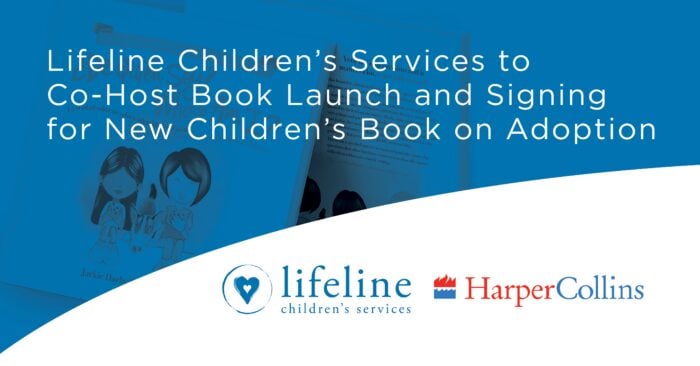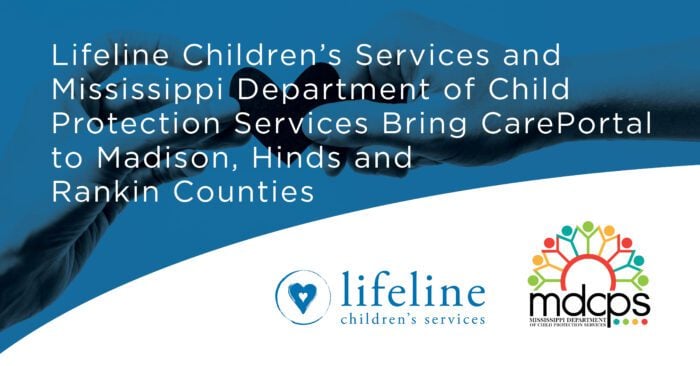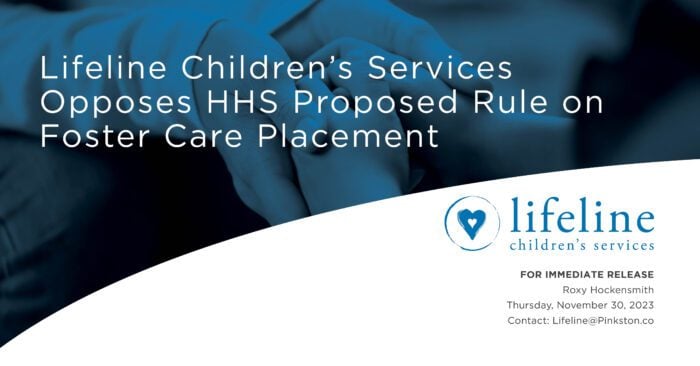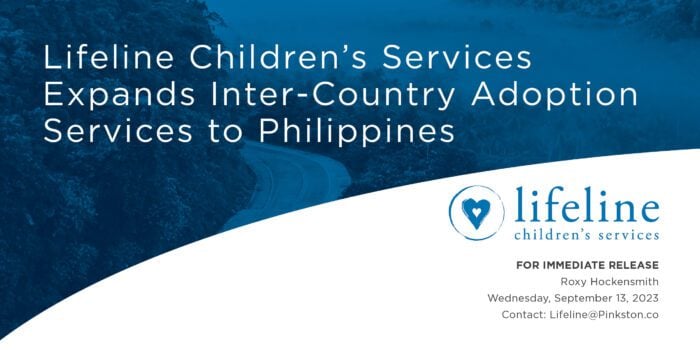

The following article was written by the mother and daughter (who are the subjects of this article). They worked together to present this content in a way that would be helpful for adoptive parents. Their heart is to educate and encourage families with honest, real-life, practical examples. In an effort to be honest but still maintain privacy and respect, we are honoring their request to remain anonymous.
“It was the best of times, it was the worst of times,” is a description coined by Charles Dickens in his book A Tale of Two Cities. This quote may ring a familiar bell for those of you whose families have come together through adoption. As a 21-year-old college student with an abundance of aspirations and yet-to-be-fulfilled dreams, I idealized adoption when I first announced to friends, “I plan to adopt one day!” While I do not deny the sovereignty of the Lord in this plan, I simply did not understand the scope of what was to come.
Fast forward to age thirty. As a now-married woman, the children that I had imagined would come with the five-year family growth plan hadn’t. Others around me were getting pregnant and adding to their families, but my husband and I remained a childless couple. This is when I began to revisit my earlier dream of adoption; however, no one told me that it wouldn’t look exactly as I had envisioned. Actually, it came nowhere close.
The Buildup
After 6 1/2 years of marriage and unexplored infertility, my husband and I welcomed our first “forever daughter” into our home. She had suffered the effects of early childhood neglect and bouncing around in the foster care system. Underweight, underdeveloped and misunderstood, she transitioned into our home kicking and screaming—literally.
Now to say this transition was easy (as a woman dealing with my own insecurities from infertility and my still very real dreams of having a child to call my own) would be a BIG FAT LIE. Forget trauma-informed behaviors and all the book knowledge drilled into my head; this was harder than anything I had been prepared for. Quite frankly, there was considerable shame compounding my feelings because I wanted to love this child and run from this child at the same time. The truth that I held in secret (well, just between the Lord and me), was that I didn’t instinctively attach to our daughter. And, this unexpected twister that kept sucking up our joy and tossing us around had a name: it was G R I E F.
I have often said that our daughter’s grief and mine collided (imagine Hercules versus Zeus.) I could see that she was hurting—there was no way to deny that. She cried and clung and vacillated between laughter, anger, and control. She wasn’t able to make friends easily or adapt well to social settings, but I thought that the old “bloom where you’re planted” adage would eventually set in, and whatever the source of her grief, would fade in time. Dealing with her hurt (in a way that was necessary for her healing) was too hard while nursing my own disappointments and a sense of miserable failure. It was easier to just not talk about it.
The Eruption
Before we knew it, our preschooler had become a “normal” high school student—an experience that would surely aid in her social and emotional development. Only, our kiddo, who had been able to mask her own internal struggles, which stemmed from a sense of rejection by her birth family and an “I don’t fit anywhere” feeling, decided now was the time to let the cat out of the bag.
The FIRST time I was contacted by the school counselor came as a shock to me. Our precious daughter, who had been instilled with truth from God’s word for years, was acting out in ways that shook me to the core. WHY??? Why in the world would she even think about doing the things she was doing? When confronted by her dad and me, the inevitable answer was “I don’t know why . . .” And, so we called in the cavalry. We went to see a professional counselor who handed me several articles on children who had been adopted and then met with our daughter privately. That counselor had no idea who she was up against. Our daughter had mastered the art of stonewalling. I’ve learned that when grief is left unattended it is easier to protect it than to open the door.
His Intercession
When it became evident that no coaxing on our part or a professional’s was going to get our daughter to explain what was going on, I returned to a familiar place—on my knees. Years earlier, when my husband’s truck would pull out of the driveway in the mornings (and I knew he and our daughter were safely on their way to daycare), I would hit the floor in desperation and cry out to the Lord for answers: “Lord, have I made a mistake adopting a child when I could barely manage my own emotions?”
Like those early years, I was faced with the familiar and painful reality that I did not have the power to control what was happening. I needed God’s grace and strength in my weakness.
“Likewise the Spirit helps us in our weakness. For we do not know what to pray for as we ought, but the Spirit himself intercedes for us with groanings too deep for words.” (Rom. 8:26)
The cry of my heart became “Pray for me, Lord. Pray for me. I don’t know what to pray. I ask that you take this difficulty and redeem it. Use it for your glory. Change me.”
Over the months that followed, there were bitter tears, raised voices, pleading and pounding of fists at all that was happening inside our home and out. A battle had ensued. There was no doubt that a very real enemy was vying for our daughter. He knew as well as I that her story of redemption would hold a lot of power if unveiled. And so we put on our spiritual armor and fought (understand that part of this fighting included combating patterns of denial, pride, and fear.) But Jesus be praised for tearing the veil! Something truly profound happens as we are ushered into the presence of the Father through prayer. His power and peace are felt there, despite our shortcomings. And when we seek Him with all of our hearts, He will answer.
His Healing
During this time of healing, the Lord, in His faithfulness, revealed some practical and helpful steps for our family:
- Our daughter needed a mentor.
In this season of intercession, I counted five different people who suggested to me (and often unsolicited) that our kiddo needed someone other than me to talk to. This wasn’t an easy step for me to take since I didn’t relish the idea of our rebellious teen airing all of our dirty laundry to an outsider. But something that is repeated that many times probably shouldn’t be ignored.
This next thing is important: I have learned that you don’t necessarily have to take all of the steps at one time, if you will just take the next step.
And so, I asked the Lord “Who?”
The “who” turned out to be a former church member that had been corresponding with our daughter through cards for years. She had gained her trust through this simple act of friendship. When I finally mustered up the courage to ask if she would mentor her, she quickly agreed. Neither she nor I knew what this arrangement would look like, but that didn’t really matter. I simply asked if she would reach out to our daughter routinely and take her out for some face-to-face time. And, she did.
If you are wondering if this sweet friend would come back and report to me all that our daughter confessed to her (the good, the bad, and the ugly), the answer is no. In fact, when it seemed that it was just too difficult for our child to articulate her feelings to us, we would encourage her to talk it over with this friend (whom we didn’t call a mentor at first.) Our girl has admitted in the years since then that having a confidante has given her someone to talk to “without worrying about hurting anyone’s feelings.”
- Our daughter needed our family to communicate openly.
It was the crises we faced together that forced me to accept the reality of the communication (or lack thereof) within our own family. If I was going to ask my daughter to confide her deepest secrets in a mentor, I had to be willing to accept what she had to say, too. On a very practical note, this meant putting aside sensitivity and my hot temper and really listening. I realized that all of our “stuffing” was not doing anyone any good. Pulling the curtain back—layer by layer—was HARD, but worth it.
Do not imagine for a moment that I have perfected this. Good listening does not come naturally, but supernaturally. I desperately need the Holy Spirit to temper me, to hold my tongue, and to prevent me from saying regrettable things; when I am willing for Him to do this work in me, trust builds between my daughter and me. WE TALK ABOUT EVERYTHING NOW. And, as long as everyone is respectful, nothing is off limits. Yep, that includes birth family, friendships, sex (and every other difficult topic that comes to mind).
We have “health check-ups” (she calls them “heart check-ups”), when I ask “How are you doing?” and “What is going on?”, and I still sometimes brace myself for the answer. The purpose of this type of confrontation is to provide accountability for her and to make sure that I am not missing something really important. And by the way, this open communication thing is mutual. I have discovered that sharing my insecurities and shortcomings—and how the Lord is working those things out of me—creates relate-ability that my daughter seems to find inviting.
- Our daughter needed information about her story.
From what I understand, this struggle is common for a lot of parents through adoption. We, as parents, KNOW there are too many hard parts to our children’s stories to even wrap our adult minds around. So, how in the world can a child possibly process the enormity of the situation that led to his/her placement into another family?
This dilemma led to our silence, which translated in the following way to our daughter: If she really was “wonderfully and fearfully made” (as taught to her from God’s word at an early age and repeated countless times), why were her dad and I keeping parts of her story under lock and key?
The truthful but complicated answer is FEAR. We feared she would rebel more. I feared she would reject us as her family and, more specifically, me as her mother. We feared too much information would hurt her. Inadvertently, our attempts to protect her and our family fixed a question mark above her head and left her wondering silently, “What is so shameful (about me) that they need to conceal my story?”
But in God’s grace, after more than two years of intentionally working on the communication in our home, a very telling conversation took place between us and brought amazing freedom to our daughter and me. In a moment of real courage and vulnerability on her part, she admitted that, years earlier, she had been sneaking online at school and searching for her birth mother. Horrified by this revelation, I asked her with great indignation “Why?”
This time the dam broke and there was no “I don’t know why” in response. Hallelujah!
Instead, the tears flowed freely down her cheeks as she confessed through desperate words, “I need to know why [my birth mother] didn’t want me!”
There it was. The elephant in the middle of the room that I had danced around for years. There was absolutely no way to ignore the grief this time. Grateful and surprised by her transparency, I went to my husband and asked, “What do we do?” And, his response, “We tell her.”
So, we (mostly my husband) sat with our daughter and repeated what we had read in her birth family’s social history years before. He was very direct and did not sugar coat a lot, which was a little surprising to me, but was, evidently, just what she needed at the time. She sat and listened intently, and the relief was visible. Since then, she has been able to articulate to me that hearing the reasons for her placement into foster care, and eventually into adoption, helped her understand that her birth mother could not parent any child—it was not because of her.
- Our daughter needed a way to use her God-given talents and abilities to serve others who were experiencing difficulties.
This was one of the most surprising and delightful parts of her healing. Years before, our family had been involved with a local equestrian ministry for children with special needs—many of them whose lives had been touched by foster care and adoption. Thinking this would be a good fit for our daughter, who absolutely adored horses and had been enamored with them since a very young age, we enrolled her in a course there that teaches nurture through care for the horses. Well, out of the blue, I received an email from this same ministry asking if our daughter would like to serve as a summer intern there now that she met the age requirement. Without having to think long or hard on it, I approached her with this opportunity, and she agreed to apply.
Through this internship, God began changing her heart. Our daughter, so chock-full of God-given compassion, immediately connected with the kids she was serving and with their struggles. It truly was like watching the veil being lifted as she realized that God really had designed her with talents and abilities that are useful to others who hurt! The truth that she was fearfully and wonderfully created started makings its way from her head to her heart. God is the “lifter of [our] heads” (Psalm 3:3), and sometimes He allows opportunities to serve to take our gaze off of ourselves and put it onto others. For our daughter, serving others during a time of difficulty created real perspective and allowed her to help instead of hurt.
In the months that followed and after real healing had begun, she approached me with an idea. “Momma, I think the Lord wants me to lead a group for kids who are struggling…”
And, that is what happened. God opened a door for her to facilitate a support group at our church for teens walking through grief. Kids whose lives had been touched by foster care, a parent’s incarceration and addiction came to hear truths from God’s word that our daughter shared. God will get the glory from our kids’ stories.
Freedom in Grief
And so here we are, three years later, expectant that God will continue His healing work in all of our hearts. There really is no formula for healing, only truth and grace from the Father, who actually does have unfathomable understanding (Isaiah 40:28).
My hope for your family, if you are walking through grief (or maybe your child’s difficult behaviors are rooted in grief), is that you will experience the freedom found in confronting this hard, but God-given, emotion in a way that promotes healing in your home. If you are facing grief as a parent, you are not alone. Many moms and dads through adoption hide their struggles because of feelings of embarrassment or shame. But your heart is important to the Lord, too. Never forget that He, too, feels grief and pain and desires for us to draw near to Him in our brokenness (“The Lord is near to the broken hearted and saves the crushed in spirit.” Psalm 34:18.)
My daughter’s grief has forced me to face my own, and for that, I am thankful. I am thankful that I know the unwavering, faithful character of the Lord more than I did before. I am thankful that I get to talk openly with others about this real struggle in my life. I am thankful that my daughter and I are closer than we have ever been because of the grief that we have shared. And I am utterly, indescribably thankful that God has proven to her and me that He will never, never leave or forsake us.




